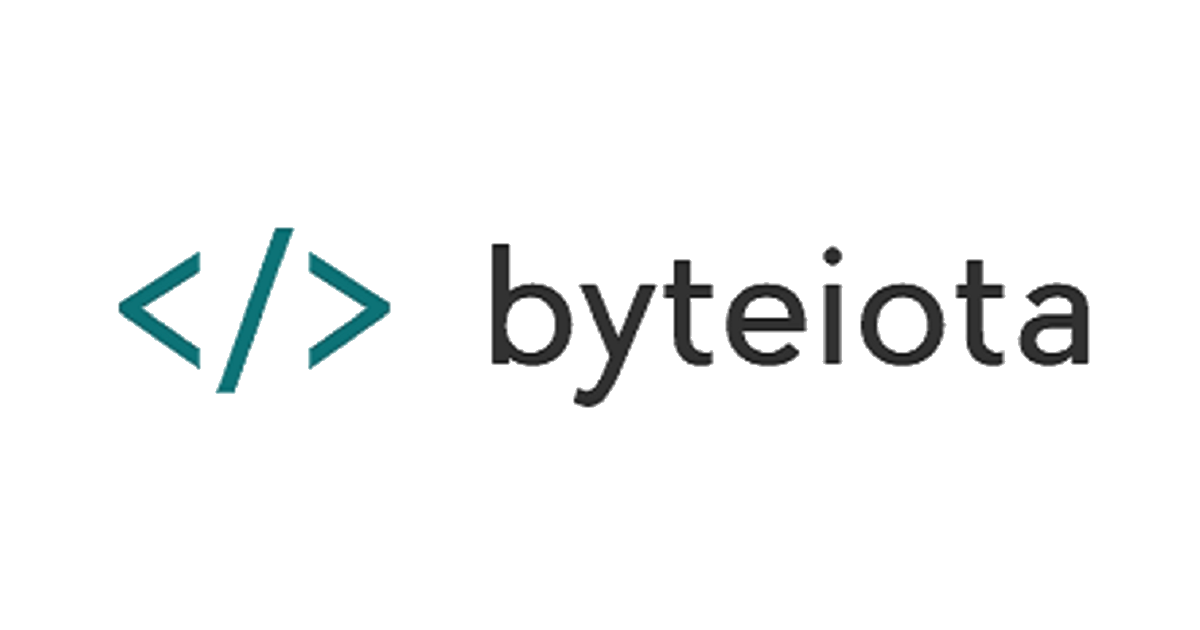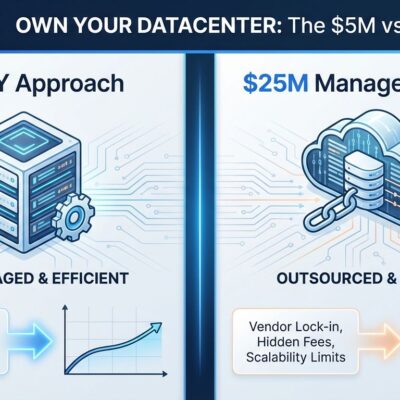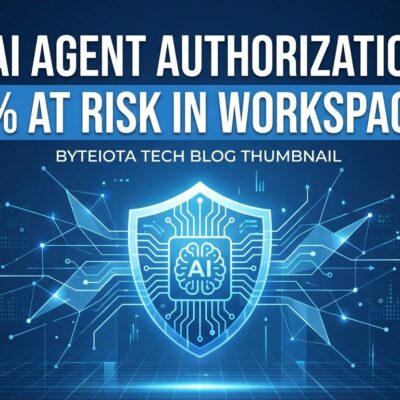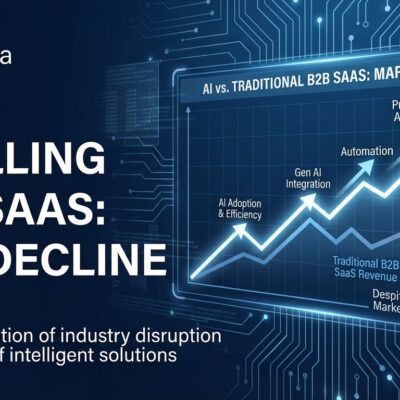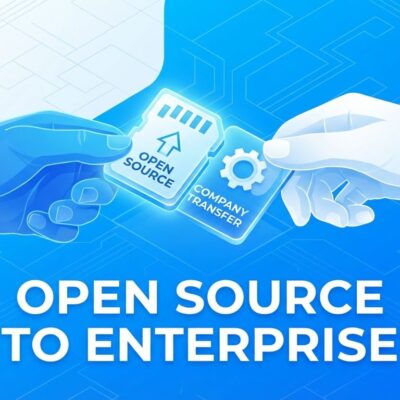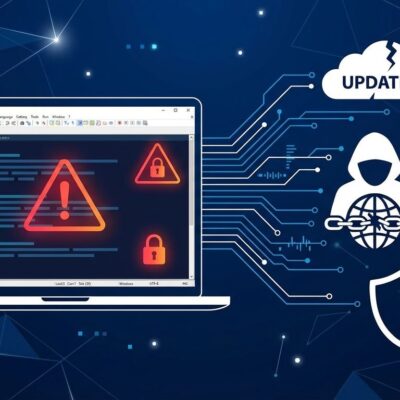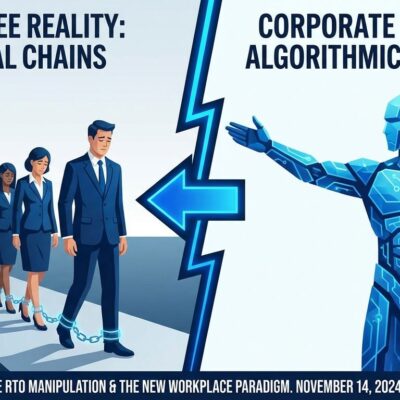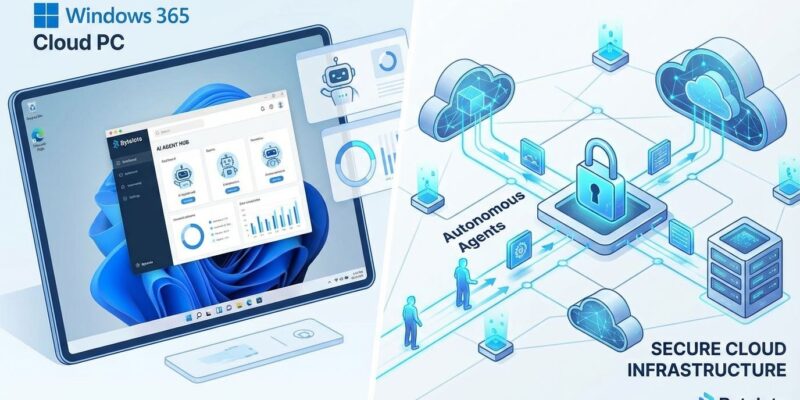
Microsoft Ignite 2025: Windows 365 for Agents and Agent 365 Tackle AI Agent Sprawl
Microsoft Ignite 2025 delivered a wake-up call for enterprises drowning in AI agent sprawl. While 82% of companies already run AI agents and 80% report risky behaviors like improper data exposure, Microsoft is betting developers need enterprise-grade infrastructure for autonomous agents, not more chatbots. Announced November 18-21, the platform includes agent-specific Cloud PCs at $0.40/hour, the Agent 365 governance control plane, Model Context Protocol integration, and a 30% Copilot price drop to $21/month.
Windows 365 for Agents: Cloud PCs Built for Autonomous Agents
Unlike standard Cloud PCs designed for human remote workers, Windows 365 for Agents provides isolated virtual Windows or Linux environments where AI agents can operate without risking production systems. The difference matters: agents can launch dozens of Cloud PCs simultaneously for parallel processing, run 24/7 without breaks, and require strict isolation to prevent mistakes from cascading across your infrastructure.
At $0.40 per hour, enterprises scale agent deployments based on workload demands. Partners like Manus AI, Fellou, and GenSpark are already building automation workflows—from PowerPoint creation to expense report processing—on the platform.
The infrastructure integrates with enterprise governance from day one: Entra ID for identity, Intune for policies, and agent-specific security controls. When an employee directs an agent to fill an expense report, the agent launches its own Cloud PC, navigates the application in isolation, and submits the form without touching the user’s environment.
Currently in preview, Windows 365 for Agents powers Microsoft’s own Copilot Studio and Researcher features, proving even Microsoft recognizes agents need different infrastructure than chatbots.
Agent 365 Control Plane: Solving the Agent Sprawl Crisis
Here’s the uncomfortable truth: 53% of AI agents access sensitive information daily, yet most enterprises have no centralized inventory of what agents they’re running. Agent 365 tackles what analysts call the new “shadow IT” problem—rapid agent proliferation without governance.
The control plane provides centralized registry to track and quarantine unauthorized agents, Entra Agent IDs for lifecycle management, least-privilege access controls, activity monitoring, and full audit logging. IT admins assign dedicated A365 licenses when approving agents, ensuring every autonomous process has explicit oversight.
What makes Agent 365 compelling is platform-agnostic support. Whether you built with Copilot Studio, Azure AI Foundry, or third-party frameworks, Agent 365 provides governance without forcing architecture rewrites.
The question enterprises should ask isn’t whether they need agent governance, but whether they know what agents are running in their organization right now.
MCP Integration, Copilot Price Drop, and Infrastructure Upgrades
Microsoft also announced agent connectors powered by Model Context Protocol (MCP), the open standard for connecting agents to external tools. With 2,000+ MCP servers in the ecosystem, Microsoft is integrating MCP across Copilot Studio, Azure AI Foundry, Windows 11, and Dynamics 365. The play: standardization prevents vendor lock-in.
Microsoft 365 Copilot for Business drops to $21/month (from $30) starting December 1 for businesses under 300 users. This isn’t generosity—it’s strategic positioning before Google and AWS commoditize AI assistance.
Underpinning the infrastructure is Cobalt 200, Microsoft’s next-gen ARM CPU with 132 cores on TSMC’s 3nm process. The chip delivers 50% better performance than Cobalt 100 with memory encryption by default and hardware accelerators for compression and cryptography.
The Infrastructure Shift No One’s Talking About
Stop treating agents like chatbots. The shift from conversational AI to autonomous agents requires fundamentally different infrastructure. Chatbots respond to prompts; agents make decisions, access systems, and execute independently. That autonomy demands isolation, governance, and lifecycle management standard AI platforms weren’t built for.
With 80% of organizations already encountering risky agent behaviors, the market for agent infrastructure is proven. The question is whether Microsoft captured it early enough to set the standard before AWS and Google respond.
Do you know what agents are running in your organization? If not, Agent 365 might be worth evaluating before that uncertainty becomes a compliance problem.
